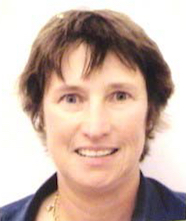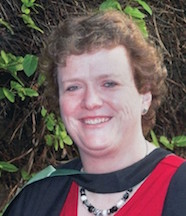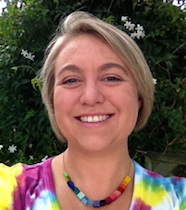Overview
The Master in Clinical Pharmacy (MClinPharm) is the final programme in the postgraduate programmes of study. The PGDipClinPharm papers you have chosen will determine which papers you need to do at this stage.
If you have done a PGDipClinPharm then you will need to complete:
- A 30-point Research Methods paper
- PHCY 5A (PDF) Thesis (90 points)
View key dates related to the above paper
A requirement for the programme is that candidates are registered pharmacists in New Zealand or Australia and practising in their country of residence.Enrolling in the MClinPharm
We recommend you enrol before 10 December to complete the required paperwork, if you plan to undertake study in semester 1, or by May for a start in semester 2.
Enrol in the Master of Clinical Pharmacy
This link will take you to the University page for the qualification, which outlines information and regulations for the programme. On that page, click the 'Apply Now' link to start the process.
You will first be directed to create (new students to the University) a Student Portal, or log into (returning students) the Student Portal using your username and password. Please remember to return to your Student Portal, as this is where your Letter of Offer will be sent!
Getting started on your thesis
Getting started on your thesis can be daunting and it's easy to put it off. We encourage you to start planning your thesis and discuss this with Associate Professor Alesha Smith (Paper Co-ordinator for PHCY 5A Thesis) as soon as possible, even if you are unsure what you would like to do.
Also feel free to ask advice at any point from our Postgraduate Administrator:
Email pharmacy.postgrad@otago.ac.nz
Choosing a topic
For some people the topic is obvious: something that they've always wanted to do. For others, it takes longer to identify a topic. If you know what you want to do, then you need to find a supervisor and discuss the project with them. They can advise you about whether the project is feasible within the timeframe and resources available. Be prepared to be flexible about your study topic: utilise your supervisor's expertise and knowledge.
If you are unsure what you want to do, feel free to approach potential supervisors in the School of Pharmacy. Academics like to talk with people about their research and many of them have potential projects suitable for MClinPharm students.
Choosing a supervisor
It is useful to have two supervisors: someone who works in your institution or lives in your city / region who can help you with the practicalities of the project, and a staff member in the School of Pharmacy at the University of Otago who knows about the administrative processes. Either of these people could be the primary supervisor in terms of input into the project.
For the local supervisor, think about what kind of advice, support, and access to resources you might need, who you would like to work with, and who is most likely to be able to help you. This supervisor does not need to be a pharmacist. Potential supervisors are most welcome to contact either the Postgraduate Administrator (pharmacy.postgrad@otago.ac.nz) or Associate Professor Alesha Smith (Paper Co‑ordinator for PHCY 5A) to discuss the MClinPharm thesis requirements.
For the School of Pharmacy supervisor, you could look at the School website to find out about staff's research interests. Feel free to approach any staff member and discuss your interests.
Contact Associate Professor Alesha Smith if you don't know where to start.
How much time will my thesis take?
The 90-point thesis should take 18 months half-time. Almost everyone who has done an MClinPharm thesis in the past has done this while working full-time as a pharmacist.
When designing your research project it is important to think about your work and other commitments and how you will fit your thesis work around it. Some projects are more flexible than others in their time requirements.
For example, lab-based projects may require concentrated periods of time in the lab. This can be an advantage if you have this time available, because you can make good progress in a short time. However, if you cannot get these periods of time for research, this kind of project is not suitable for you.
Ethics approval
All research involving human participants requires ethics approval. Your supervisor at the School of Pharmacy can advise you about whether you need ethics approval, and if so, to whom and how to apply.
Contacts
Please email either:
The Postgraduate Administrator
Email pharmacy.postgrad@otago.ac.nz
or
The Paper Co-ordinator for PHCY 5A
Associate Professor Alesha Smith
Email alesha.smith@otago.ac.nz
Quotes from postgraduate alumni
Kathy Maxwell
 BPharm PGDipClinPharm MClinPharm MPS FNZCP RegPharmNZ
BPharm PGDipClinPharm MClinPharm MPS FNZCP RegPharmNZPharmacist and Community Pharmacy Owner / Operator
“It's been a really good experience and because I'd done my master's, when the opportunity to be part of the editorial advisory board for the New Zealand Formulary came up, I had the confidence to apply. I don't think I would have if I hadn't have done my master's.”
Gill Swannick
 Managing Editor, MIMS, Sydney
Managing Editor, MIMS, Sydney“Completing my master's was mentally stimulating, gave me more confidence in the workplace, and more career opportunities as well. When it was time to do my dissertation it just felt too hard and I couldn't think of anything interesting. But once I had the idea, I was away.”
Lorraine Welman
President, NZHPA“A master's degree gives you an extra perspective on pharmacy practice and opens your mind to all sorts of possibilities and new ideas. Completing it, you have a great sense of achievement, especially because of the high standards.
“It's not just a piece of paper, it's something I've earned. My practice has changed completely because of that experience.”
Ginny Brailsford
 BPharm(UCT,SA) DipAdTL MClinPharm
BPharm(UCT,SA) DipAdTL MClinPharmPharmacist and IPP Feasibility Study Team Facilitator, University of Otago
“The dissertation paper in the master's qualification introduced me to the importance and relevance of research in advancing pharmacy practice. I found this to be a significant and welcome departure from the format of other postgraduate papers which challenged not only my academic outlook but my management and interprofessional skills. The completion of the dissertation helped raise me to a whole new level of thinking.”